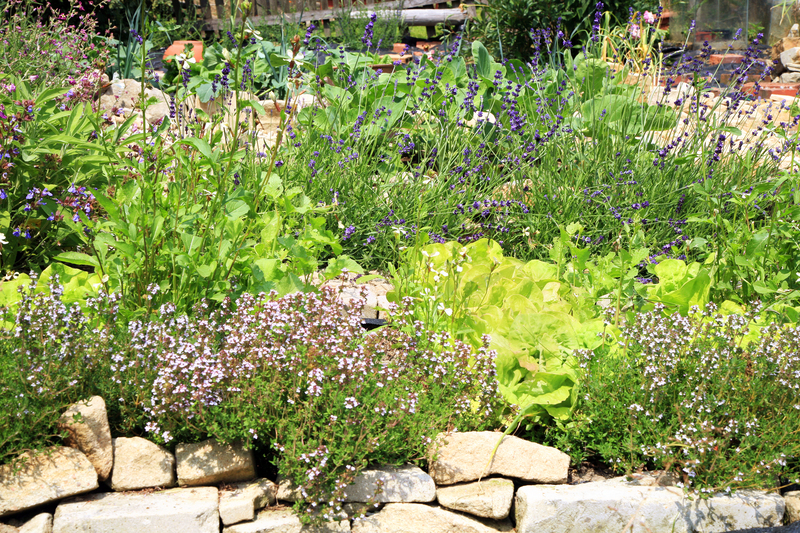Start Your Gardening Adventure with These 9 Foundational Tips
Posted on 24/09/2025
Start Your Gardening Adventure with These 9 Foundational Tips
Embarking on your gardening journey can be a fulfilling and transformative experience. Whether you have a sprawling backyard or a cozy balcony, cultivating plants introduces you to new skills, beauty, and a deepened connection with nature. This comprehensive guide on starting your gardening adventure with nine proven foundational tips will set you on the right path to planting success. Drawing from expert advice and time-tested wisdom, this article provides actionable strategies for beginners and budding green thumbs.

Why Start Gardening? The Transformative Power of Growing Plants
Before we dive into the foundational gardening tips, let's take a moment to appreciate why gardening is so rewarding. Besides enhancing the aesthetic value of your space, gardening offers immense physical, mental, and environmental benefits:
- Stress relief & mental wellness: Numerous studies link gardening to reduced anxiety and improved mood.
- Physical activity: Gardening is a natural way to keep your body moving and promote overall health.
- Fresh produce: Growing your own veggies and herbs makes meals tastier and more nutritious.
- Biodiversity: Gardens attract pollinators, support wildlife, and contribute to a greener planet.
Ready to plant the seeds of change? Let's explore the essential gardening basics for getting started.
Tip 1: Choose the Right Location for Your Garden
Your gardening adventure begins with selecting the optimal spot. The right location sets the foundation for healthy, flourishing plants.
Consider Sunlight, Soil, and Accessibility
- Sunlight: Most vegetables and flowers need at least 6 hours of direct sunlight. Observe your chosen area to ensure it receives adequate light.
- Soil quality: Fertile, well-draining soil promotes robust growth. Avoid waterlogged or heavily compacted spots.
- Accessibility: Your garden should be easy to reach for planting, watering, and harvesting. Proximity encourages regular care.
Take time to survey your property or living space. For beginners, starting small with container gardening or raised beds can make the process manageable and rewarding.
Tip 2: Understand Your Climate and Growing Season
Knowing your local climate is crucial to a successful gardening experience. Each region has unique environmental factors--let's explore how to align your efforts with nature.
Identify Your USDA Hardiness Zone
- Use the USDA Plant Hardiness Zone Map to determine which plants will thrive in your area.
- Consult local gardening centers or cooperative extension services for tailored planting advice.
Start with Climate-Appropriate Plants
- Select seeds or seedlings known to perform well in your region's temperatures and rainfall patterns.
- Consider planting native species--they're accustomed to the local environment, making them generally hardier and lower maintenance.
Adapting your gardening practices to local weather conditions is non-negotiable for thriving plants and minimizing frustration along the way.
Tip 3: Invest in Essential Gardening Tools
The right equipment can make all the difference when starting your home gardening adventure. You don't need every gadget, but a few core tools are indispensable:
- Hand trowel & spade: Perfect for digging, planting, and transplanting.
- Pruning shears: Useful for trimming plants and maintaining healthy growth.
- Watering can or hose: Helps deliver consistent moisture, crucial in the early stages.
- Gardening gloves: Protect your hands from dirt, thorns, and blisters.
- Garden fork & hoe: Aid in breaking up soil and removing weeds.
Quality tools last longer and make gardening tasks less strenuous. Clean and store your tools properly after each use for years of reliable performance.
Tip 4: Start with Simple, Resilient Plants
The best way to gain confidence in your first gardening adventure is by cultivating plants that are forgiving and easy to grow. Focus on these beginner-friendly options:
- Herbs: Basil, mint, chives, and parsley thrive in small pots and require minimal fuss.
- Leafy greens: Lettuce, spinach, and kale grow quickly and can be harvested throughout the season.
- Root vegetables: Radishes and carrots are quick to mature and simple to harvest.
- Flowers: Marigolds, zinnias, and sunflowers add instant color and boost pollinators in your garden.
Starting with resilient varieties lets you learn the basics of watering, fertilizing, and pest management with less risk of disappointment.
Tip 5: Master the Basics of Soil Health
Healthy soil is the cornerstone of every successful gardening venture. Plants draw nutrients, water, and structural support from the earth. Here's how to lay the groundwork:
Test and Improve Your Soil
- Purchase an affordable soil test kit or send samples to your local extension office for analysis.
- Identify deficiencies in pH, organic matter, or nutrients before planting.
Feed Your Soil--Not Just Your Plants
- Incorporate compost or well-rotted manure to boost fertility naturally.
- Use mulch to protect roots, retain moisture, and suppress weeds.
Remember: Healthy soil fosters healthy plants, which are more resistant to disease and stress.
Tip 6: Water Wisely and Consistently
Proper watering distinguishes thriving gardens from wilted disappointments. Here are essential watering strategies to keep your garden adventure flourishing:
- Water early in the morning to reduce evaporation and fungal issues.
- Deep soaking is preferable to frequent, shallow watering--this encourages strong root development.
- Monitor soil moisture by inserting your finger about an inch into the soil. If it feels dry, it's time to water.
- Adapt to the weather: Rainy days may mean skipping scheduled watering, while hot, windy conditions increase water needs.
Many gardening beginners overwater or underwater plants--observe and adjust as necessary for your garden's unique demands.
Tip 7: Stay Ahead of Weeds and Pests
Weeds and pests are a natural part of garden life, but they don't have to dampen your enthusiasm. Employ these strategies for effective management:
- Mulching: Layering organic mulch (like straw or bark) stifles weeds and conserves moisture.
- Regular inspection: Check your plants frequently for insect larvae or disease symptoms.
- Hand weeding: Remove weeds early before they spread and compete for resources.
- Encourage beneficial insects: Ladybugs and lacewings control harmful pests naturally.
- Avoid excessive chemicals: Organic solutions like neem oil, soap sprays, or companion planting can deter pests safely.
Persistence and observation are the keys to maintaining a healthy, vibrant garden space.
Tip 8: Record and Reflect on Your Progress
Every garden is unique, and tracking your journey enriches the experience. Whether you keep a diary, digital notes, or photo log, documenting successes (and failures) accelerates learning.
- Note planting dates, weather patterns, and harvest yields.
- Record pest outbreaks or unexpected plant behavior.
- Celebrate milestones--like your first bloom or bounty of tomatoes!
Reflection helps you refine techniques, anticipate seasonal changes, and feel pride in your evolving gardening adventure.

Tip 9: Engage with the Gardening Community
Gardening is as much about community as it is about soil and seeds. Expand your knowledge and find support by connecting with others:
- Join local gardening clubs or classes: These offer hands-on advice and camaraderie.
- Follow gardening blogs, forums, and social media groups: The internet is teeming with inspiration and troubleshooting tips.
- Visit public gardens and nurseries: Observe varied plant combinations and landscape techniques.
Don't hesitate to ask questions or share your own experiences--the gardening community is remarkably welcoming to beginners!
Conclusion: Cultivate Confidence on Your Gardening Adventure
Beginning your gardening adventure may feel daunting at first, but with these nine foundational tips, you'll enjoy a smoother, more successful start. Remember, every great gardener began as a novice, learning from both setbacks and triumphs.
- Choose your site and know your climate
- Use the right tools
- Start simple
- Build soil health
- Water, weed, and watch for pests
- Track your progress and seek out community support
With patience, persistence, and the right strategies, your first gardening season can blossom into a lifelong passion. Now is the perfect time to pick up a trowel and start your gardening adventure--the joys of growth await!
Latest Posts
Evergreen Escapes: Climbers for Shaded Corners
Start Your Gardening Adventure with These 9 Foundational Tips
Design a Dream Garden with Little Time and Expense
Guide to growing fresh herbs: for culinary use and beyond
Eco-Friendly Wind Defense: Sustainable Practices for Gardens

